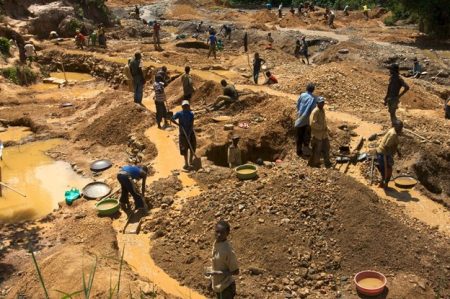 21 January 2014, Johannesburg – South Africa’s ailing economy cannot afford more mine labor unrest, Finance Minister Pravin Gordhan said on Monday, after the platinum industry’s main trade union said it would launch a strike at the world’s top three producers this week,Reuters reported.
21 January 2014, Johannesburg – South Africa’s ailing economy cannot afford more mine labor unrest, Finance Minister Pravin Gordhan said on Monday, after the platinum industry’s main trade union said it would launch a strike at the world’s top three producers this week,Reuters reported.
A wave of sometimes violent strikes in the factory and mining sectors constrained growth to a sluggish. two per cent in 2013, hampering efforts by President Jacob Zuma’s government to create badly needed jobs as it braces for elections this year.
Zuma’s African National Congress has swept all elections since overturning white minority rule in 1994, but faces rising criticism it has failed to pull millions of blacks out of grinding poverty during 20 years in power.
The rand currency turned weaker after Gordhan’s comments on Monday, a day after members of the Association of Mineworkers and Construction Union voted to strike at the world’s biggest platinum producer, Anglo American Platinum.
Unionists have also elected to walk off the job at Impala Platinum and Lonmin Plc and a simultaneous stoppage at the three would hit exports as the rand wallows near five-year lows versus the dollar.
Renewed labor strife in Africa’s biggest economy will raise a red flag for ratings agencies after more than 50 people died during violent mine protests in 2012 that triggered downgrades from Moody’s, Fitch and Standard and Poor’s.
“The platinum industry needs to seriously get around the table,” Gordhan told state broadcaster SAFM in an interview on Monday.
“We can least afford another round of strikes that will act as a destabilisation to the platinum sector which has had increasing difficulties over the last 18 months.”
Earlier this month, Moody’s cited weakening productivity and strike-related business losses, exacerbated by declining terms of trade, as a major credit challenge for South Africa.
“The economy has never fully recovered its momentum following the global recession in 2009, partly due to domestic political and economic turbulence ignited by violent labor unrest and the associated uncertainty that it has created,” it said.



